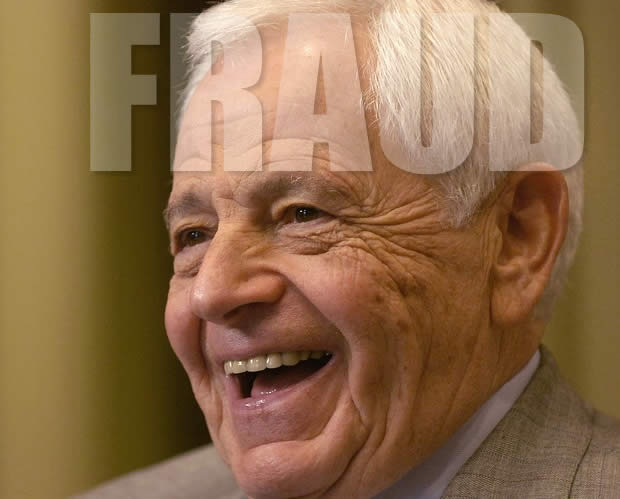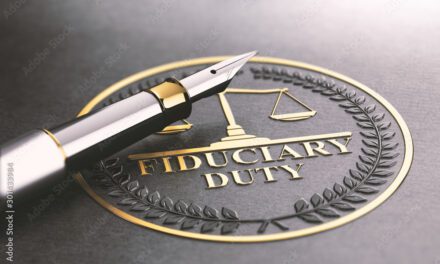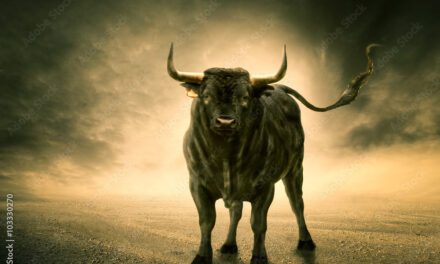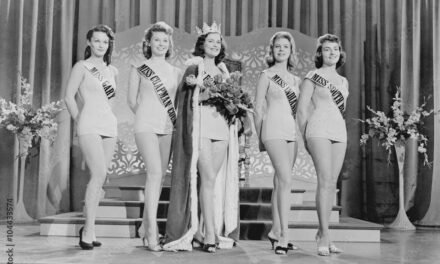Stanley M. Chesley is a famous man, who is no longer a lawyer in Kentucky, therefore, probably not a bar licensed lawyer for very long in Ohio, where his principal office is located. Chesley has represented a number of plaintiffs in the fen-phen cases. He was apparently treated as a bit of a “king,” if not a “god,” among other “gods,” in big time tort cases. He was especially thought of as a “wizard” of negotiations. This was one of the ways he made his vast fortune, so I’m told. I have no idea how many large cases he actually tried.
Some well-known plaintiffs’ lawyers create and spread vivid images of themselves as “Hard Knock Litigators,” when what they really do is attract lots of cases, invent the golden and stormy image, and then turn all the cases over to others to actually try, although only a few ever do. Once a lawyer has built this image, potential clients flock to him, other lawyers send clients to him, defendants grow anxious, and third to second rate insurance companies quake.
Plantiffs’ lawyers, like the one I am talking about, serve adjusters elegant lunches at settlement negotiations, and then make massive amounts of fun behind their back: “Did you see those guys work shoes from Target and suits from Walmart? No wonder they cave so quickly.” (Part of the purpose of all this, as I have been told by such some plaintiffss’ lawyers, is to get insurance companies to sent his/her firm some work or to send it to friends of theirs plaintiffs’ lawyers who, out of gratitude, will send them work.)
I’ve witnessed a particular lawyer march a whole staff of associates into his luxury conference room like it was a military parade. I have to confess, I told the insurer to settle early in the casee, since its lead adjuster was not licensed in the relevant state and since the Claims File contained both racist and sexist statements. I’d never seen that before, and I haven’t seen it again. Still, I’m still convinced I did the right thing.
In the fen-phen cases, absolutely enormous amounts of money flowed forth. The sins of the manufacturer had been both many and immense. Part of the background for this case was that there was a huge class action; a group of four Kentucky lawyers had their clients withdraw from a class; and they proceeded for their 451, or so, clients. They hired Chesley to handle settling the case, and so he did; the defendant agreed to pay in the aggregate $200M, subjected to various agreements, and left it to plaintiff’s counsel to decide how to allocate and distribute.
As the money came in, the lawyers involved did not tell the clients about the aggregate settlement, but “explained” to their clients that there had been individual offers, and then obtained agreements to the settlements and the fees calculated at the usual 1/3, or so, level. Remember: the percentage was measured against the fraudulent offers of settlement–offers that were invested by the lawyers themselves.
According to the opinion of the Kentucky Supreme Court, the four lawyers who worked on the case from beginning to end, snuck off with over 3/4s of the $200M settlement, and distributed only approximately $46M to their clients. The male member of those members of the “plaintiff team” should be in the same cell as Madoff.
Not only did these lawyers steal a fortune from their clients, but when the conspiracy began to unravel (anybody with any common sense would know it was bound to), they held hearings with the judge in the case, mislead him, lied to him, and recruited him to participate in creating a phony charity. To make matters even worse, they appointed his honor to a board position for the so-called charity, the purpose of which was to hide the money. The four Kentucky plaintiffs lawyers were disbarred, as was the judge. This was one of the main offenses of the judge; he also signed an order approving their massively distorted fees as “reasonable and necessary. So far we have reached five disbarment’s, and all of them are reported cases.
We’ve just gotten to “King” Chesley, and his disbarment is the sixth. He is directly guilty of lying to the now disbarred judge and of assisting the other five lawyers in their scheme. He had two main defenses. First, he claimed that he did not represent the plaintiffs, but only worked for their lawyers. Second, he claims to have left the case when the settlement was done, and so he could not be responsible for any of the evil doings of anyone else. These defenses are silly, of course, and if Chesley could have avoided what happened to him–which he could not–the lawyer who devised this strategy would be guilty of malpractice; unless he warned Chesley, that defense would almost certainly fail.
Since all these cases can be easily found and read–look under Guard v. A.H. Robins, in WestLaw–I will focus on Chesley’s involvement in the matter of attorneys’ fees. Remember, he was to receive 21% of the legal fees.
As nearly as I can make out, Chesley had received more than $16M by the time the “stuff hit the fan.” Apparently, there was an additional payment of $4m. He said he was not expecting it, asked no questions about how it was calculated, but just had it placed in the bank.
The Court rejected nearly all of Chesley’s argument for the following reasons:
Chesley’s fee was unreasonable as a matter of law, and he should have known it.
The size of his fees is particularly obvious, since he did almost none of the work and had almost nothing to do with the clients. As the Court put it, he did none of the “heavy-lifting.”
Chesley had a legal and ethical obligation to inquire about how the distribution was being handled with the clients, and made sure that they were not lied to.
Chesley represented the plaintiff and as such he was legally responsible for the money conspiracy of his compatriots.
Given the size of his fees, Chesley had a duty to his clients to make sure that they knew how legal fees were being calculated.
So Chesley is finished. His career is totally and for ever smashed. He leaves no positive legacy. It is doubtful that his family can be thoroughly proud of him for long. If he is not ashamed of himself already, he will be if he has the slightest humanitarial streak and stays alive long enough. At the same time, he may want to count his blessings. One of the four lawyers received a conviction of 25 years, while another received only slightly less. Since they are both middle-aged, they will probably not be reading any books about the joys of life as one passes into the elder years. It is difficult to see why Chesley was not first charged and then indicted.
It is sinful to judge others. It is equally or more sinful to take pleasure in the suffering of others, even if they deserve it. On the other hand, it is difficult not to take pleasure in witnessing, even at a distance the ruin of those who have and celebrate hubris. I suspect Chesley will (or would) not be permitted to stay in the downtown business club or in the country club. He might even get kicked out of the ABA.
Disbarred: Famous Plaintiffs’ Lawyer–Stanley M. Chesley








Recent Comments